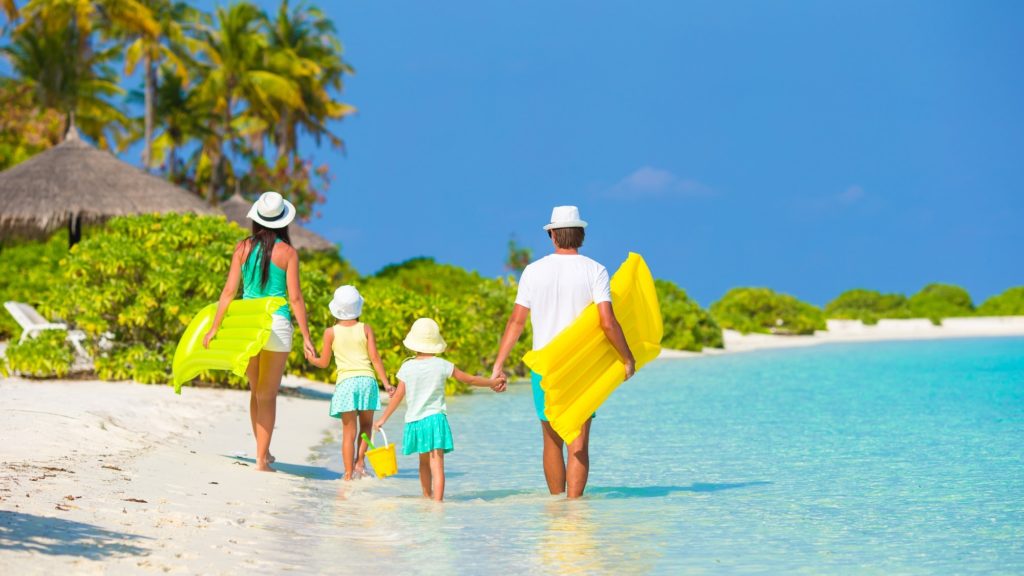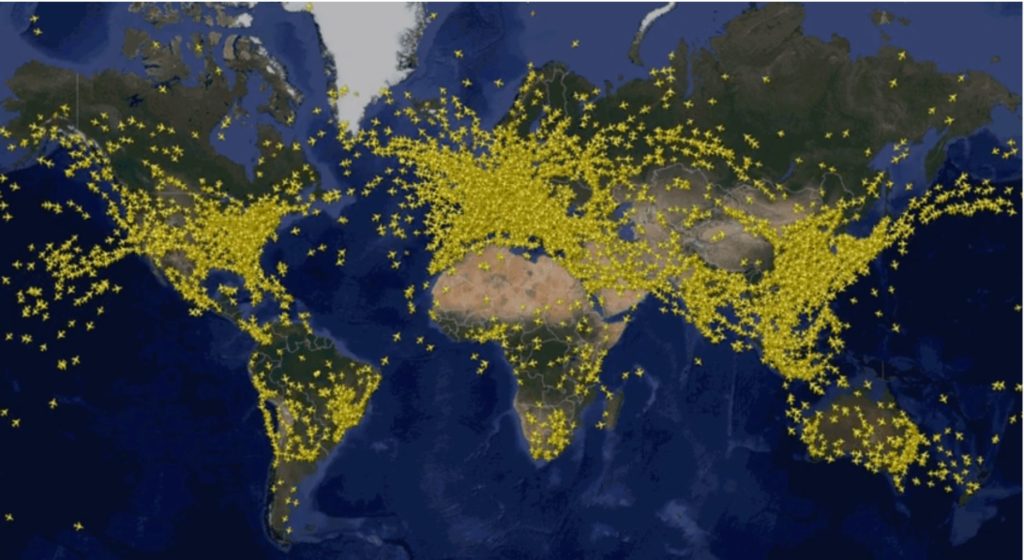“Flight shame” (Swedish “flygskam”) hits the middle class and upper class where it hurts most. Stop pushing “most people” in front of you.

The Swedes (Norwegians are far worse) are among the frequent flyers. They fly 7 times more than average global citizens. While Sweden’s total CO2 emissions have fallen by 24% since 1990, air traffic grew by 61% in that time.
THE EFFECT: In Sweden where Greta Thunberg last august started her school strike for climate, and where the “flight shame” concept was invented, the number of passengers has dropped by five percent compared to the same period last year. For domestic travels, the decline was 11 percent in May this year compared with May last year.
FOTO: COLOURBOX

@eivindtraedal
Writer, City Counselor Oslo, The Green Party (MDG)
Should We Feel Shame of Flying? I really prefer the word responsibility.
And for me, the answer is simple: I feel a personal responsibility to reduce pollution. It is a natural part of the even more important work of getting involved politically to make environmentally friendly choices the cheapest and simplest for everyone.
We do not save the planet alone, but there is also no way to get politicians and business to change society – without all environmentally minded people starting with themselves
It is the top 5% members of our community that have to look at themselves in the mirror and make the change when it comes to “flight shame”.
Hits the upper class and middle class
«Flight shame» makes for such harsh debate because it hits the middle class and the upper class with such clinical precision the strongest. That is of course if you choose to look at unnecessary holiday travel and not travels that are a necessity like it is for the people living in the north part of Norway where there are no real alternatives.
That is why it creates such noise.
Exstensive traveling is a luxury reserved for a small global elite. An estimated 80% of the population on earth has never flown according to the CEO of Boeing. In 2017 only three percent of the av the world’s population flew.
That means ordinary people on our planet do not have for a habit to fly. And even in Norway frequent flyers are few.
These few individuals are pushing “ordinary people” and the districts in front of them. That is pretty rude.
City dwellers with posh jobs (even “green”)
The numbers from Avinor from 2017 says Norwegians made 11 million t/r flights – on average one flight abroad and one domestic flight. But these numbers are of course just an average.
While a majority flies less than average, there are also a “5% community” of people in high positions whos frequent flying is part of their every day, they fly many flights a month or even weekly, both domestic and abroad.
These city dwellers with posh jobs (even “green”) fly the most both for work, leisure and holidays.
This is why the debate on flight shame and personal responsibility is effective. It hits individuals who seek status and are self-conscious. As a chief editor in Aftenposten (or even at a green think-thank).
We have a 5% community of people in high positions who perceive frequent air traveling as an integrated part of their everyday life.
Do not touch my city breaks
The newspaper Aftenposten has strongly condemned the concept of “flight shame” in an editorial that somehow contradicts it self, were the paper also argues for responsibillity. The reason may be that the debate about «flight shame» is effecting the habits of the people who traditionally are the most climate engaged – people with higher education in cities.
The Aftenposten’s editorial department is staffed with intelligent, highly educated and wealthy people. On paper, they are climate engaged, but they are not willing to let go of their city breaks in Europe, or the many flights in an important white-collar job, traveling to conferences, trips for study or teambuilding in distant parts of the world.
It is a debate that hurts them, therefore they try to put “most people” and the districts in front of themselves. It is pretty rude.
On paper, they are climate engaged, but they are not willing to let go of their city breaks in Europe.
BKK and Equinor please join forces to avoid a new Alta controversy
Blames it on the North of Norway
When Primeminister Erna Solberg defends her holiday travels by plane referring to how Norway is such an elongated country, it does not make sense. What relevance has domestic distances in Norway, when she is traveling from Oslo and to the south abroad?
The numbers speak for themselves: the by far busiest airports in Norway are in the large cities in southern Norway.
The reason why five million Norwegians fly almost four times more domestic flights than the Swedes is not that the people in the northern part of Norway lack an alternative to air travel, or that people at “Nordmøre” on the west coast do not have the possibility to take the train. The reason is that people so frequently fly between Oslo, Bergen, Trondheim, and Stavanger.
Eurostat statistics show Oslo-Trondheim is Europe’s fifth most traveled air route. Oslo-Bergen follows close after as number eight, and Oslo-Stavanger as number 16. These are routs where it exists an offering by train.
If the Norwegian Government had not for decades undermined the opportunity for functioning speed train between the cities, all these routes could have been served for by train. Even with the opportunity to make a few stops.
This will be a better decentralizing measure instead of furthering growth in the air traffic between the large cities.
The debate on flight shame and responsibility is effective. Because it hits the people who are the most occupied by status and self-consciousness.
Flight shame is effective
It is the people at the very top of society who are asked to take a closer look at themselves in the mirror in the “flight shame” debate. Their reaction is revealing. The editorial staff at Aftenposten argues that making people accountable is «passivating» and may create a counter-reaction.
There is no doubt that it has created a counter-reaction. But this counter-reaction is first and foremost a sign that the arguments are indeed effective.
How can it be that “flight shame” is passivating, when it is exactly people like me, who feel a responsibility to fly less, who engage ourselves most in politics for a better offering of train transport, and to make it easier to stay on the ground?
We are paralyzed by good conscience.
Rather be “train proud” («togkry»)
I have not been focused on shame and responsibility. My concern is to spread excitement and joy over an environmental friendly fulfilling life. This spring I founded the Facebook group «train holiday», as of today the group has more than 20 000 members. In this group, it is not about feeling flight shame, more like beeing «train proud” (“togkry»), a concept that was invented in the group.
Can it be true that people become passivated and turn their back on climate politics if one also talks about shame? Funny enough I see no reference to science when people claim this, I, therefore, presume that people talks for themselves.
Why is it that they are so eager to disclose that they have the mentality of a child in their terrible twos?
Norwegian are passivated towards the climate crisis, but it is not because we are paralyzed by bad conscience, on the contrary. We are paralyzed by good conscience.
«The air passenger tax» is lower today than it was in the 1990s, and it costs less than a beer at the airport.
Our Prime minister Erna Solberg has told us that our oil is good for the environment, that if emissions should rise Norway can buy its way out with CO2 quotes, and we can fly with a clean conscience.
That is the reason we need this uncomfortable and provoking debate about “flight shame”. Because it elicits arrogant and impetuous reactions from the top level of society, who know they really do not have an especially strong case.
It does not feel good to pollute for fun.

Image: FlightRadar24
In March 2018, the site recorded its busiest day of air travel since it launched back in 2007, logging 202,157 commercial, cargo and personal flights in a single day. This is equivalent to 140 planes taking off every minute somewhere around the globe.
Article originally published on NRK July 2, 2019, republished by permission from the author.
Is this the opposite of a
win-win-situation… or just the perfect definition of irony?“Heathrow says it is worried climate change will cause problems to third runway”.https://t.co/jhz7Qlvv3I
— Greta Thunberg (@GretaThunberg) July 5, 2019




24 Comments
Pingback: Bau14c
Pingback: bonanza178 rtp
Pingback: Water Heater Plumbers
Pingback: steenslagfolie
Pingback: เว็บ spinix188 คาสิโนออนไลน์
Pingback: Diyala Bauc14
Pingback: groepsreis gambia
Pingback: รับทำเว็บไซต์
Pingback: สล็อตโบนัสแตก แจกทุกวัน
Pingback: Terrorism
Pingback: เว็บพนันออนไลน์เกาหลี
Pingback: ลดข้าวดีด ข้าวเด้ง
Pingback: blackjack
Pingback: ปั่นสล็อต เว็บไหนได้เงินไว แจกโบนัส 100%
Pingback: https://onewayvladivostok.com
Pingback: MLM business
Pingback: คาสิโนออนไลน์ เกมทำเงิน 24 ชั่วโมง
Pingback: Доставка авто з США
Pingback: เช่ารถตู้พร้อมคนขับ
Pingback: About Us
Pingback: best promos
Pingback: แทงบอลออนไลน์เกาหลี
Pingback: n-ethylpentedrone kopen | buy 2mmc | 6 apb pellets | buy 5-mapb | deschloroketamine | 4-mpd (4-methylpentedrone) | 6 apb powder | 2-mmc pellets, 5-mapb | 2-mmc crystalline powder | 4bmc poeder | acheter 3-me-pcp | buy cathinonen | buy 6 apb powder |NEP N-
Pingback: ติดเน็ตบ้าน เอไอเอส